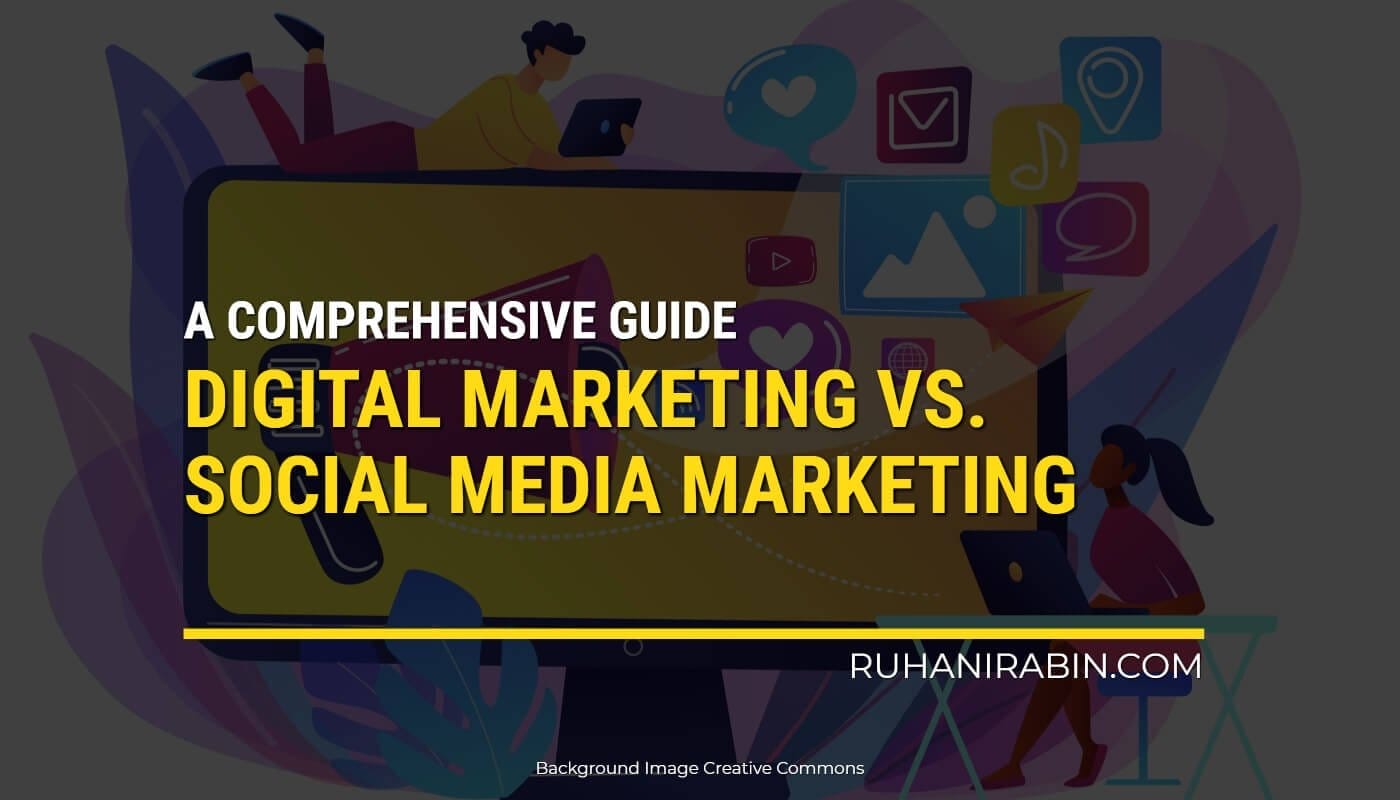Digital Marketing vs. Social Media Marketing: A Comprehensive Guide
Unlock the power of digital and social media marketing for your business with our comprehensive guide.

Does social media feel like a jungle for you? Do you still need to decide whether to chase likes or optimize keywords? Within this digital landscape, two prominent marketing strategies have shown increasing presence: a blend of digital and social media marketing. The same principle essentially drives them, but they differ in their approach. This guide will be your machete. Here, digital marketing is compared with social media marketing. We will offer valuable facts so you can make reasonable decisions on the best online marketing for small businesses.
Get the Best Updates on SaaS, Tech, and AI
Understanding Digital Marketing
Digital marketing is an umbrella term that references distinct but interconnected online strategies and tools used to market goods, services, or brands. It includes many digital communication technologies, such as websites, search engines, email, mobile apps, and online advertising, that can visualize your brand online by attracting and engaging audiences.
Channels of Digital Marketing:
- Search Engine Optimization (SEO)
- Pay-Per-Click (PPC) Advertising
- Content Marketing
- Email Marketing
- Affiliate Marketing
- Influencer Marketing
Digital marketing tools are crucial for businesses since they can provide information regarding customers’ interests, how they relate to the brand, and the campaign’s status. Businesses can then cater to customers’ needs and measure the campaign’s return on investment (ROI).
Exploring Social Media Marketing
Social media marketing is a unique marketing approach. Such an action plan includes social media marketing and consumer interaction to increase brand awareness, engagement, and website traffic. Some social networking networks currently on the rise are Facebook, Instagram, Twitter, and LinkedIn.
Critical Aspects of Social Media Marketing:
- Constructing brand awareness and a web of relationships
- Creating content that can be reposted [videos, info, stories]
- Collaborating with followers or influencers
- Following and responding to social mentions
However, this requires a constant and attentive approach to maintaining the audience’s interest in social media, which is exploited as a tool based on experience.
The Convergence of Both Marketing
While digital and social media marketing are different strategies, they are becoming increasingly interdependent and mutually beneficial. Multiple companies use these methods together to create a complete online marketing strategy.
Integration of Digital and Social Media Marketing:
- Sharing blog posts and website addresses on social media is significant
- Using influencers on social media as a means of product advertising
- Integrating social trust (reviews, feedback) into the digital marketing campaigns
- Seizing Social Media Analytics as a Tool for Audience Insights
Assessing the Suitable Option for Your Business
Whether you focus on digital marketing or social media, marketing will depend on your business goals, the audience you aim to reach, and the resources available to your business. According to the social media report, more than 4.59 billion people use social media platforms today, which is estimated to increase to almost six billion in 2027.
In early 2024, a study revealed that Northern and Western Europe topped the charts for social media use globally. Specifically, 81.7 percent of people in Northern Europe and 80.2 percent in Western Europe were active on social networks. Therefore, knowing where your audience is active is vital.
It is also essential to consider the marketing intentions you choose to work on. Suppose you are keen to establish brand awareness and strengthen the community. In that case, social media marketing may be more suitable. In contrast, if your main priority is to create a traffic source for direct sales, SEO and PPC digital marketing techniques are more effective.
On the other hand, social media marketing can be a cost-efficient option for small businesses with a limited budget rather than expensive digital marketing campaigns that consume a significant portion of the marketing budget. By combining both strategies, you can achieve an integrative and multifaceted online presence that allows you to connect and involve customers through multiple touchpoints.
Utilizing the Best Digital Marketing Tools
Be it about your chosen strategy, the most crucial thing is to have the right digital marketing tools to achieve the desired outcome. Popular tools in 2024 include:
- SEO and keyword analysis tools such as Ahref and SEMrush.
- Social networking management and scheduling tools like Hootsuite and Buffer
- Email marketing and auto-email programs (for example, Mailchimp and Constant Contact)
- Content development and optimization tools (for example, Grammarly and Canva)
- Analytics and reporting platforms such as Google Analytics, Sprout Social
Through the best digital marketing tools, businesses can gain efficiency in their online marketing activities, follow performance trends, and continuously improve tactics to yield optimal results.
Frequently Asked Questions
Q: How does digital marketing differ from social media marketing?
A: Digital marketing is a broad term that includes all online marketing efforts, whereas social media marketing focuses explicitly on marketing through social media platforms.
Q: Can small businesses benefit from integrating digital and social media marketing?
A: Absolutely. Combining both strategies allows small businesses to maximize their online reach and engagement without blowing their budget.
Q: What’s more crucial, digital marketing or social media marketing?
A: The importance varies depending on your business goals and audience. Digital marketing might be preferable for direct sales and traffic, while social media marketing could be more effective for brand awareness and engagement.
Conclusion
With the advent of the digital era, it is imperative that businesses embrace it, and multi-channel online marketing is the way to go. Adverse to this fact, the agility and choice of using a perfect combination of digital and social media strategies will be indispensable for addressing the audience and growth.
Image by vectorjuice on Freepik
FTC Disclosure: The pages you visit may have external affiliate links that may result in me getting a commission if you decide to buy the mentioned product. It gives a little encouragement to a smaller content creator like myself.


